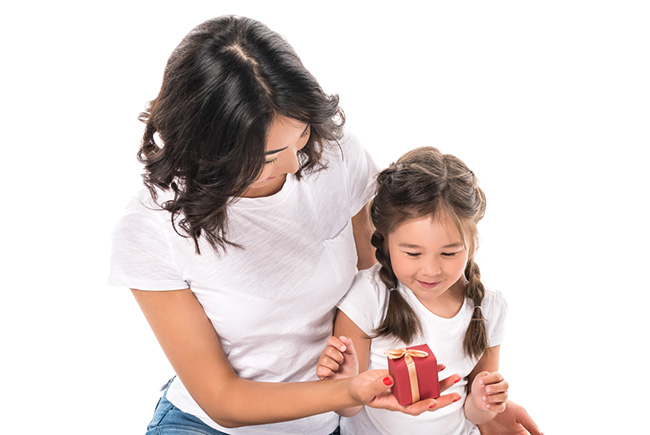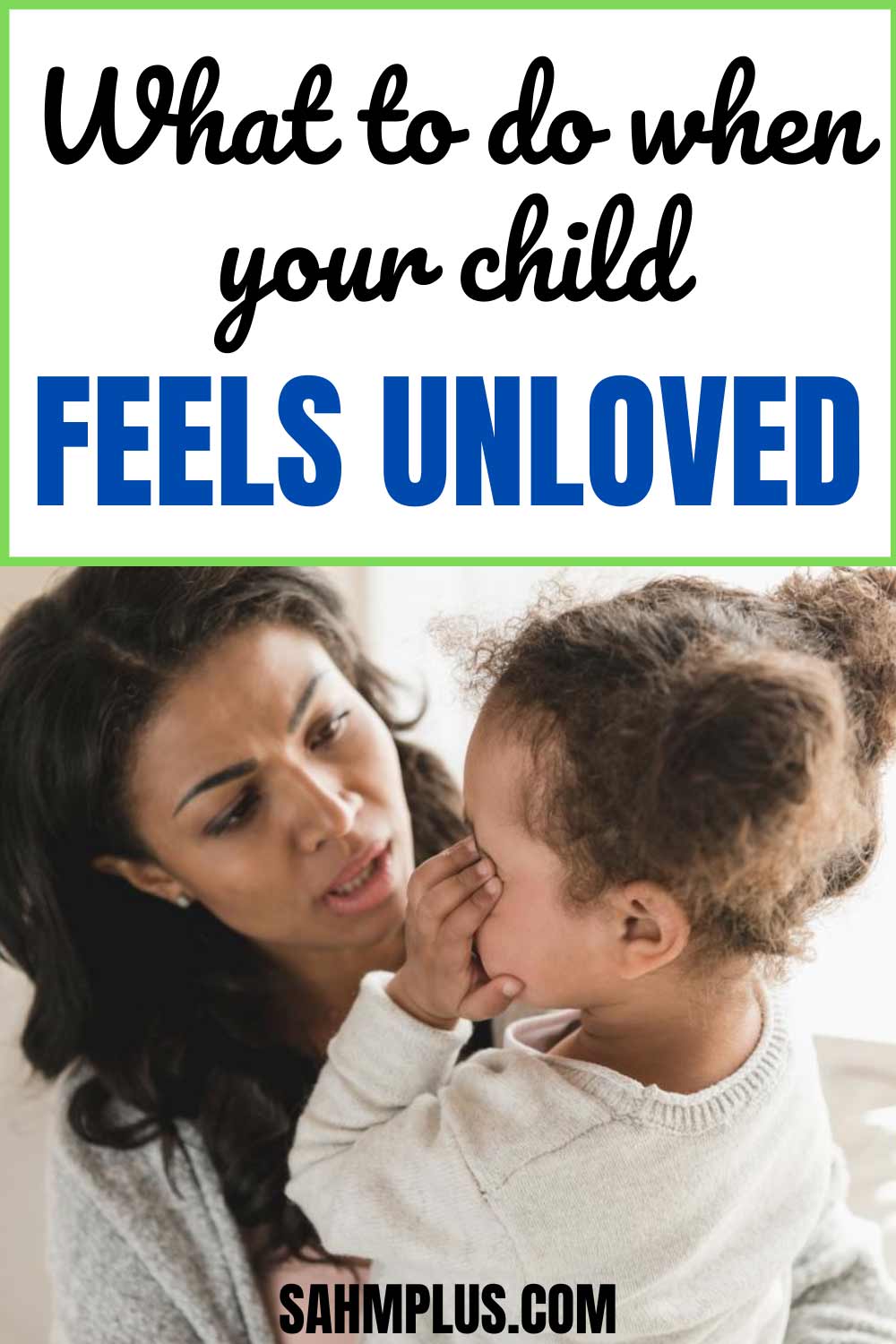Emotions are high and we’re all on edge with the current situation in the world! We’re dealing with expectations and uncertainties that continue to shape our way of life. And our children are feeling some of the effects. Does your child feel unloved? Here’s what to do when your child says you don’t love them.
Social distancing with kids at home can be quite taxing.
Families aren’t getting breaks from each other (and for some, that can be very frustrating).
Parents are having to make hard decisions about whether or not to send kids back to school.
I know how difficult it was for me when I first started working from home before all this social distancing was required. Until I got into a good routine and set a more consistent schedule, it was easy for me to become overwhelmed.
Sometimes my anxiety over everything that had to get done really affected my mood. And, occasionally, I took it out on the kids.
In the heat of the moment, I have been told they don’t love me and recently I had the pleasure of hearing my 4 year old say “you don’t love me.”
Both instances hurt. But I don’t want my children to ever think I don’t love them because it’s not true!
I know how difficult it feels as a child who believes a parent doesn’t love them and I would never wish that on my own children.

What to do when your child says you don’t love them
After playing (and losing) a couple rounds of tic tac toe, my son turned into a sore loser and began crying. When we couldn’t get his emotions in check, I finally sent him to his room to calm down. A few minutes later I went to check on him and he said “you don’t love me anymore.”
I got to put into practice exactly what I’d been preparing for this post. So, this is what to do when your child says you don’t love them. The following advice is what I use in my own home.
Ask questions
Ask questions!
Don’t assume you know why they feel the way they do.
“Why do you feel that way?” or “What makes you think that?” are good ways to get an idea of what they’re focusing on.
Let your children, in their own words, describe what they have been feeling, seeing, or hearing that makes them think you don’t love them.
Smaller children probably won’t be able to fully understand this question, but they will have a response. If they’re like my son, they will say something like “you made me go to my room.”
This is the perfect opportunity to reiterate the chain of events while also letting your child know that you do, in fact, love them!
Is this an emotional outburst?
Know that sometimes a child telling you that you don’t love them is an emotional outburst.
Kids aren’t always great at regulating their emotions, so make sure you’re helping them manage emotions. This was certainly the case of my son! He couldn’t handle losing, listening to why he was losing or how to keep his sister from winning, and then was upset further by being told to go to his room.
Is this a manipulation move?
Maybe they don’t know they’re being manipulative, but kids can be quite smart about playing on your feelings.
Does your child want something or feel like a decision you made prevents them from doing something they wanted to do?
A recent example from my son came on a day we were continually asking him to stop playing in the dirt. After repeated failed attempts, he was placed in time out for not listening. He then cried out “I guess no one loves me.”
Yep! He was trying to play on our feelings to get himself out of trouble.
Unfortunately, for him, we didn’t let it change our minds about the consequence he was given for not listening.
Reflect
How was today? What has the last week or two been like?
Have you been stretching yourself too thin and losing your temper?
Have you been spending more time with one child?
Have you accidentally left your child out?
What has your tone been around your children?
It’s easy to go through the day not thinking much about your words or actions when you’re trying to get things done. Take a moment to see if you’ve been careless with your words or have been acting distant because of all the stuff on your plate.
Apologize
It can be so hard apologizing, as a parent. But, if it’s warranted, do it.
Even if you haven’t done anything wrong, it’s okay to let your children know you’re sorry they feel the way they do. Remind them that you love them and that you never intend to hurt your children’s feelings, but that you are human. You have bad days and sometimes you make poor choices.
No bribing

Know that this isn’t something to “fix” with bribery.
Don’t accidentally turn this into a regular guilt trip. You don’t want to teach your children to play on your emotions just to get new toys, extra junk food, or an expensive outing.
You probably don’t want to turn the thought of love and attention into a monetary or material display that promotes entitlement mentality.
Get Your Kiddo To Smile
After assessing the situation and reminding your child that you do love them, attempt to bring a smile to his or her face! Cure your kids bad mood with funny sounds, jokes, or some movement so that you both can enjoy some peace and happiness again.
Your children may, at times, have their feelings hurt by legitimate wrong-doings, even if they’re unintentional. You can help heal the pain through acknowledgment and apologies. And above all else, if you tell them you’re going to work on your actions/reactions, really work on it.
But, it’s just as important to recognize that children’s feelings can be “hurt” because something didn’t go as they planned. When you know you “hurt” your child’s feelings because you stuck to your guns over a rule that keeps your child safe and healthy, it’s okay to remind them that is your job, as a parent. Let them know it’s okay to have feelings, but that they have to respect your decisions because you’re looking out for their best interests.
Regardless, it’s great to reminder that communication is key! Asking questions instead of jumping to conclusions will help you and your child understand the situation. And you may even be surprised how even little ones can understand such seemingly complex subjects if you just give them the chance!


1 comment
Each person has a way of showing love for their children, sometimes being too strict with them will make them feel that you don’t love them.
Comments are closed.